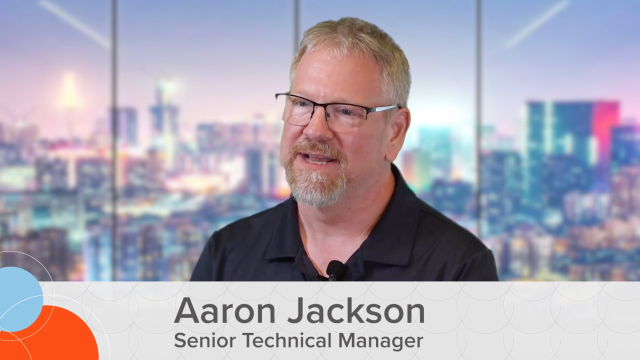Securing Critical IT Systems at a Global Biopharma Leader
 06:15
06:15
Related videos
Surf the AI Wave with Alex Simons at TEC 2025
AI is crashing into the enterprise like a tidal wave, and Microsoft’s Alex Simons is here to show you how to ride it. At TEC 2025, he’ll reveal how AI agents, a...
01:18
Securing Identity: Carnival’s Quest for AD & Entra ID Cybersecurity
Discover how Carnival Corporation enhances AD & Entra ID security with Quest Software and One Identity solutions, improving recovery times and identity manageme...
05:55
Quest + Microsoft: Accelerating cloud-driven digital transformation
In this short video, Edwin Vargas, Microsoft’s Managing Director for Americas, explains to John Hernandez, President and General Manager at Quest, the importanc...
01:08
Quest + ivision: Hybrid AD Modernization and Security
In this short video, ivision experts Michael Trapnell, Principal Consultant, and John Oppel, Field CTO of the Microsoft Group, discuss how Quest’s broad p...
02:30
Quest + ivision: Prioritizing preventative AD security and protection
Active Directory security is extremely important during M&A migrations, because they’re not one-time events, according to ivision experts Michael Tra...
02:02
Avanade + Quest: Simplifying migrations for mergers & acquisitions
Avanade and Quest have teamed up to help organizations like yours simplify moving Microsoft 365 tenants as the result of a merger, acquisition or divestiture. I...
01:24
Avanade + Quest: Avoiding common merger & acquisition migration risks
In this video, Donovan Philips, North American Workplace Lead for Avanade, and Becky Cross, Technical Product Manager for Quest, discuss how to mitigate these M...
01:13
Avanade + Quest: The value of M&A migration security due diligence
You may know your own IT environment like the back of your hand. But if you have limited experience with the environment being integrated, you may be opening up...
01:13
Avanade + Quest: M&A migration lessons learned
In this video, Donovan Philips, North American Workplace Lead for Avanade, and Becky Cross, Technical Product Manager for Quest, discuss the most critical lesso...
01:14
Avanade + Quest: Why Active Directory disaster recovery is critical
True Active Directory cyber resilience can only be achieved when you can restore the entire directory and fully reclaim control. Even if you can restore your on...
02:07
Avanade + Quest: Importance of Active Directory to the C-suite
In this short video, Aaron Greer, Midwest Region Lead Security Architect for Avanade, and Bryan Patton, Principal Solutions Consultant for Quest, discuss how to...
01:40
Avanade + Quest: Value of Active Directory attack prevention
In this short video, Aaron Greer, Midwest Region Lead Security Architect for Avanade, and Bryan Patton, Principal Solutions Consultant for Quest, discuss why pu...
02:09
TEC: The global hub for Microsoft and cybersecurity expertise
Learn about the explosive growth of TEC, which now comprises a global community of over 20,000 IT professionals and 225+ Microsoft MVPs across 85+ industries. Y...
01:59
Mastering Microsoft 365: Practical 365 keeps you ahead of the curve
Practical 365 stands as the premier online destination for IT professionals seeking to optimize their Microsoft experience. With over 1.6 million yearly users, ...
01:32
